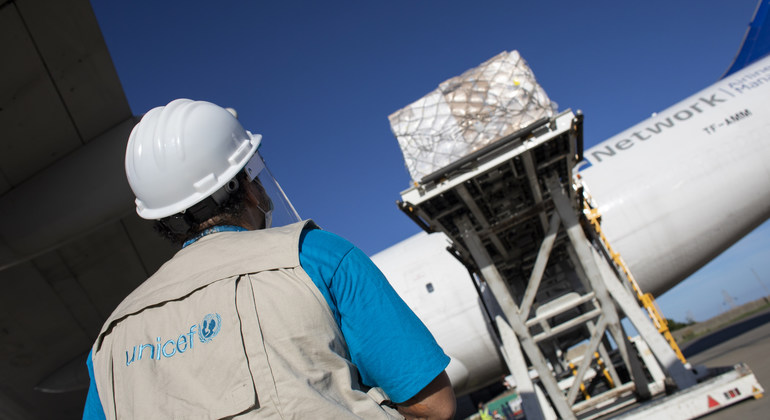Etleva Kadilli, Director of UNICEF’s Supply Division, highlighted the importance of the partnership to ensure capacity for the massive undertaking.
“As work continues to develop COVID-19 vaccines, UNICEF is stepping-up efforts with airlines, freight operators, shipping lines and other logistics associations to deliver life-saving vaccines as quickly and safely as possible,” she said.
“This invaluable collaboration will go a long way to ensure that enough transport capacity is in place for this historic and mammoth operation. We need all hands on deck as we get ready to deliver COVID-19 vaccine doses, syringes and more personal protective equipment to protect front line workers around the globe”, added the UNICEF official.
‘Largest’ and ‘fastest’ operation ever
To kick-start preparations, UNICEF along with the Pan American Health Organization (PAHO) and the International Air Transport Association (IATA), briefed major global airlines last week on the expected capacity requirements and discussed ways to transport close to 2 billion doses of COVID-19 vaccine doses next year. This is in addition to the 1 billion syringes that need to be transported by sea-freight.
In the coming weeks, UNICEF is also assessing existing transport capacity to identify gaps and future requirements, said the agency.
“The procurement, delivery and distribution of COVID-19 vaccines is anticipated to be the largest and fastest such operation ever undertaken,” it added.
UNICEF is leading efforts to procure and deliver vaccines from manufacturers that have agreements with the COVAX Facility. In collaboration with PAHO, UNICEF will coordinate the purchase and delivery for 92 low- and lower middle-income economies as quickly and securely as possible.
Unparalleled expertise
The efforts build on UNICEF’s longstanding efforts with the logistics industry to transport supplies around the world despite restrictions related to the pandemic. Since January, it has delivered over $190 million worth of COVID-19 supplies such as masks, gowns, oxygen concentrators and diagnostic test kits to support countries as they respond to the pandemic.
As the largest single purchaser of vaccines in the world, UNICEF normally procures more than two billion doses of vaccines annually for routine immunization and outbreak response on behalf of nearly 100 countries.
This unparalleled expertise includes the coordination of thousands of shipments with various cold chain requirements, making the UN agency an expert in supply chain management of temperature-controlled products, which is especially needed during this historic undertaking.


